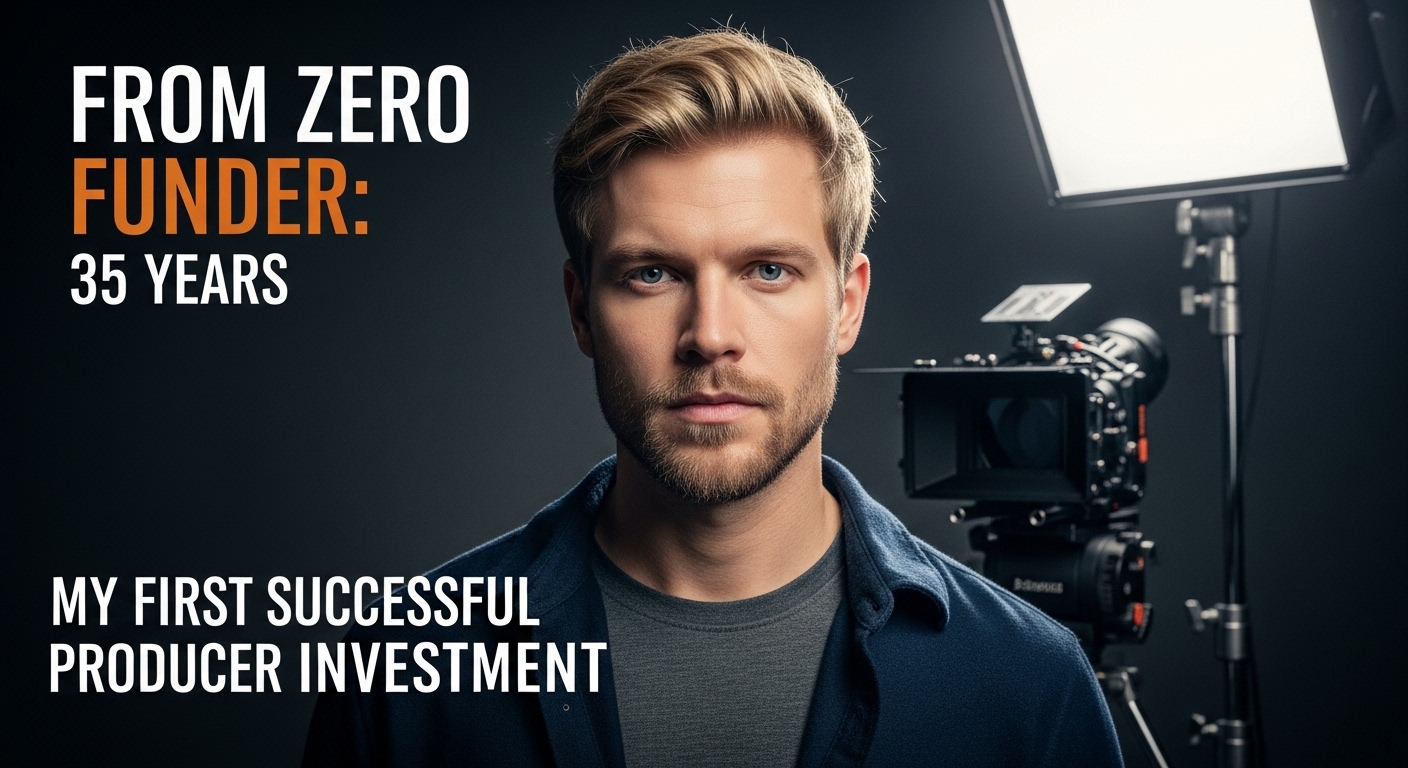Often mentioned in the credits and occasionally gracing the red carpet, the film and television producer remains a somewhat enigmatic figure to those outside the industry. Beyond the simple label of “producer,” lies a multifaceted role that serves as the very backbone of any screen production. Far from being a passive investor or a purely administrative function, the producer is the driving force, the creative engine, and the pragmatic overseer that shepherds a project from its initial spark of an idea all the way to its final release and beyond.
The Role of a Producer in the Production Lifecycle.
To truly understand what a producer does, one must appreciate their involvement across the entire lifecycle of a film or television programme.
Development Stage.
They are often the first to identify a promising concept, whether it’s an original notion, a compelling book, a news article, or an existing script, recognising its creative potential and commercial viability. This initial stage, known as development, is crucial, and the producer takes the lead in securing the rights to the material if necessary. They then collaborate with writers to shape and refine the narrative, providing feedback and guiding the script’s evolution. The producer’s creative input at this stage can be instrumental in bringing an idea to life.
Pre-Production Stage.
Once a script begins to take form, the producer’s focus shifts towards assembling the crucial elements needed to bring it to the screen. This includes securing financing, a challenging yet essential task that may involve pitching the project to investors, studios, and distributors. The producer leverages their network and business acumen to convince financiers of the project’s potential success, often by attaching key creative personnel such as directors and well-known actors.
With funding secured, the project enters pre-production, a period of intense planning and organisation. The producer plays a pivotal role in hiring key members of the creative team, including the director, cinematographer, and production designer. They also oversee the casting process, often in collaboration with a casting director, to find the perfect performers for each role.
Location scouting is another critical aspect of pre-production, with producers approving locations and ensuring the necessary permits and paperwork are in place. Crucially, the producer is responsible for creating a detailed budget and production schedule, setting the financial and logistical framework for the entire shoot. Effective pre-production is vital in mitigating potential problems and ensuring a smooth and efficient production phase.
Production Stage.
During principal photography, the producer’s role evolves to one of oversight and problem-solving. They ensure that the film remains on schedule and within budget, acting as a central point of contact for the cast and crew. While the director focuses on the creative execution on set, the producer typically manages the logistical and business operations, delegating tasks as needed to line producers and other members of the production team. Constant communication with the director and other key creatives is essential to address any challenges that may arise and keep the production on track.
Post-Production Stage.
The journey doesn’t end when the cameras stop rolling. In post-production, the producer continues to be actively involved, overseeing the editing process, sound design, visual effects, and music scoring. They may provide input on creative choices and ensure that the final cut aligns with the overall vision for the film. Producers may even request additional scenes or alternative endings based on test screenings, demonstrating their commitment to delivering a successful final product.
Marketing and Distribution.
Finally, the producer plays a crucial role in the marketing and distribution of the finished film or programme. They work with marketing teams to create trailers, posters, and other promotional materials, and they are involved in strategising the film’s release in cinemas, on television, or through other platforms. Ensuring that the stakeholders see a return on their investment is a key responsibility at this stage.
A Spectrum of Roles: The Different Types of Producers.
The title “producer” is not monolithic; it encompasses a range of specific roles with varying responsibilities within a production. Understanding these different types sheds further light on the multifaceted nature of the producer’s function:
Executive Producer (EP).
Often involved in securing financing and overseeing the overall project, EPs may not be involved in the day-to-day physical production. In television, the EP can also be the creator or head writer (showrunner). They ensure the project stays on track and meets agreed standards.
Producer.
This is often the core producer role, responsible for overseeing, arranging, managing, and initiating every aspect of production from start to finish. They are typically involved in every stage of the process.
Line Producer.
Focusing on the physical aspects of production, the line producer manages the budget and day-to-day operations, overseeing the staff and logistical elements involved in making the film or television programme.
Supervising Producer.
This role often involves overseeing the creative process of screenplay development and may include script rewrites. They can also assist executive producers in overseeing other producers.
Co-Producer.
A member of a team of producers who share the functions and roles of a single producer. This title can also recognise significant contributions to the project, such as funding or essential resources.
Other Producer Roles.
- Coordinating Producer/Production Coordinator: Responsible for coordinating the work and roles of multiple producers to achieve a shared outcome.
- Associate Producer (AP) / Assistant Producer: Supports the producer during the production process, sometimes coordinating schedules and hiring talent.
- Segment Producer: Responsible for producing one or more specific segments of a multi-segment film or television production.
- Field Producer: Helps the producer by overseeing all production outside the studio in specific filming locations, particularly common in television and documentary filmmaking.
- Showrunner: Primarily in television, this is the lead producer and often writer who has overall creative control and manages all aspects of production for a series.
- Transmedia Producer: Responsible for maintaining narrative continuity across multiple platforms for a project.
- Consulting Producer: Lends their expertise and experience to a production, often in television, influencing writing and providing guidance.
The Essential Toolkit: Skills of a Successful Producer.
Given the breadth of their responsibilities, successful producers require a diverse range of skills and qualities:
- Leadership and Organisation: Producers must be able to lead and motivate a diverse team, effectively delegating tasks and maintaining a structured and organised production process.
- Communication and Interpersonal Skills: Constant communication with all stakeholders, from the creative team to the financiers, is crucial. Producers must be adept at mediating, negotiating, and building strong working relationships.
- Financial Acumen and Budget Management: A strong understanding of budgeting and financial planning is essential for securing funding and ensuring the project stays within its financial limits.
- Creative Vision and Storytelling Ability: Producers need a keen eye for compelling stories and the ability to contribute to the creative development of the project.
- Problem-Solving and Adaptability: Film and television production is inherently unpredictable. Producers must be resourceful and able to find effective solutions to unforeseen challenges.
- Commercial Awareness: Understanding what makes a successful film or television programme and how to market it to distributors and the public is vital.
- Knowledge of the Film and TV Industries: A comprehensive understanding of all stages of filmmaking, from screenwriting to distribution, as well as industry practices and regulations, is essential.
Charting the Course: Becoming a Producer.
The path to becoming a producer can vary, but it often involves a combination of education, experience, and networking. Many producers begin with formal education in film production. Practical training and hands-on experience gained through student films are invaluable.
Gaining industry experience is equally crucial. Internships on film and television productions provide a foundation to build a career and offer opportunities to network with industry professionals. Starting in junior positions such as production assistant or runner allows aspiring producers to learn the intricacies of the filmmaking process from the ground up.
The Unsung Hero: The Indispensable Role of the Producer.
In conclusion, the film and television producer is far more than just a title in the credits. They are the architects of cinematic and televisual experiences, the individuals who identify the potential in an idea and tirelessly work to bring it to fruition. Understanding the multifaceted role of the producer is key to appreciating the intricate and collaborative art of filmmaking and television production.

I am a highly experienced film and media person who has a great deal to offer to like-minded individuals. Currently working on several exciting projects, I am a film and media practitioner for over a decade. I have achieved a great deal of success in my professional career.





